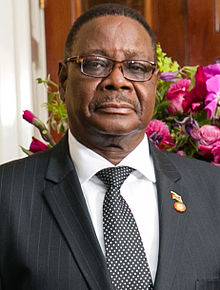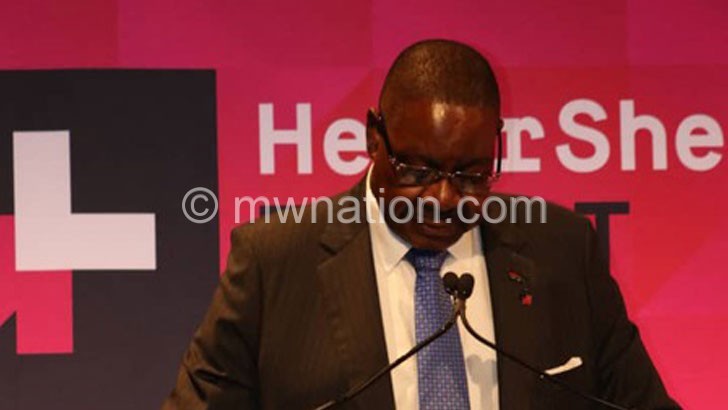
During the October 25 2017 meeting, the President outlined short-term measures to ease energy woes.
Mutharika mentioned planned procurement of diesel generators to add 78 megawatts (MW) to the national grid, upgrading of Tedzani 3 Hydro-power Station to add 11MW by 2018 and upgrading of Nkula A to increase capacity from 24MW to 36MW under the Millennium Challenge Corporation energy compact as some of the measures.

He also said solar panels would add 70MW by 2019 while Kam’mwamba coal-fired plant would produce 100MW during its first phase.
That time, Malawian electricity consumers, a meagre 10 percent of the 17 million population, were experiencing probably the worst loading schedules in memory spanning up to 25 hours.
But an upbeat Mutharika told journalists: “I ask you all to be patient. We are almost there. I can see light at the end of the tunnel.”
Two months later in a New Year’s address, the President admitted the power shortages of 2017 were “very painful”. He attributed the problem to lack of investment in the energy infrastructure since colonialism.
While the country has the capacity to produce about 300-plus MW, he said: “For 53 years, we invested in only 131 megawatts.”
Fast forward to January 31 2018, at the launch of diesel generators projected to add 55MW and reduce load-shedding from 25 hours to four hours, the President said Malawi was poised to have 1 400MW of electricity from coal, 700MW from hydro and 70MW from solar within five years.
But over 12 months after the post Electricity Supply Corporation of Malawi (Escom) and Electricity Generation Company (Egenco) meeting promise, and with diesel generators commissioned as well as Nkula A up and running, electricity consumers are almost back to square one.
Escom chief executive officer Allexon Chiwaya two weeks ago announced an extension of load shedding hours from six to nine. However, the reality on the ground has been that consumers are experiencing more than nine hours of power rationing a day.
Reacting to observations that the President’s promise that blackouts “will be a thing of the past in a year’s time”, presidential press secretary Mgeme Kalilani said Mutharika never made such a promise.
However, The Nation of October October 25 2017 quoted the President as having said that. To date, there has been no disclaimer from the President one year after publication.
In an interview yesterday, Kalilani said the President outlined short-term measures to improve the energy situation, including the gensets which he said reduced “load shedding hours from 12 hours and sometimes a number of days in some areas to about six hours per day”.
He said: “The interventions, those being implemented and those in the pipeline, are many and not restricted to non-renewable energy sources. There are also proposals from several IPPs [independent power producers] working in the area of renewable energy and, of course, the coal fired plant at Kam’mwamba which is in the offing.”
In Parliament yesterday, Leader of the House Kondwani Nankhumwa ordered withdrawal of a report and recommendations by three parliamentary committees on the country’s electricity crisis from being tabled.
Three committees—Government Assurances and Public Sector Reforms, Natural Resources and Climate Change and Commissions, Statutory Corporations and State Enterprises—were set to jointly present the report after their November 11 2017 meeting at Mponela in Dowa with Escom and Egenco.
The report has appeared on the order paper throughout the two months of the budget meeting, but it was not tabled.
Chairperson of the joint committee, Werani Chilenga, has since been appointed deputy Minister of Natural Resources, Energy and Mining, the ministry that recommendations of the joint committee would have been directed at were it to be tabled.
Nankhumwa, who is also Minister of Local Government and Rural Development, cited the wording of the report as appearing on the order paper as problematic because it would “assess the current state of electricity generation and supply within the country”.
In an interview later, he said there was no hide and seek that the government was playing on the report, but he was acting on the request of the co-chairperson, Lilian Patel who chairs the Commissions and Statutory Corporations Committee.
Malawi is grappling with provision of reliable energy largely attributed to low water levels in Lake Malawi and its sole outlet, Shire River where about 95 percent of hydro-electricity is produced.
